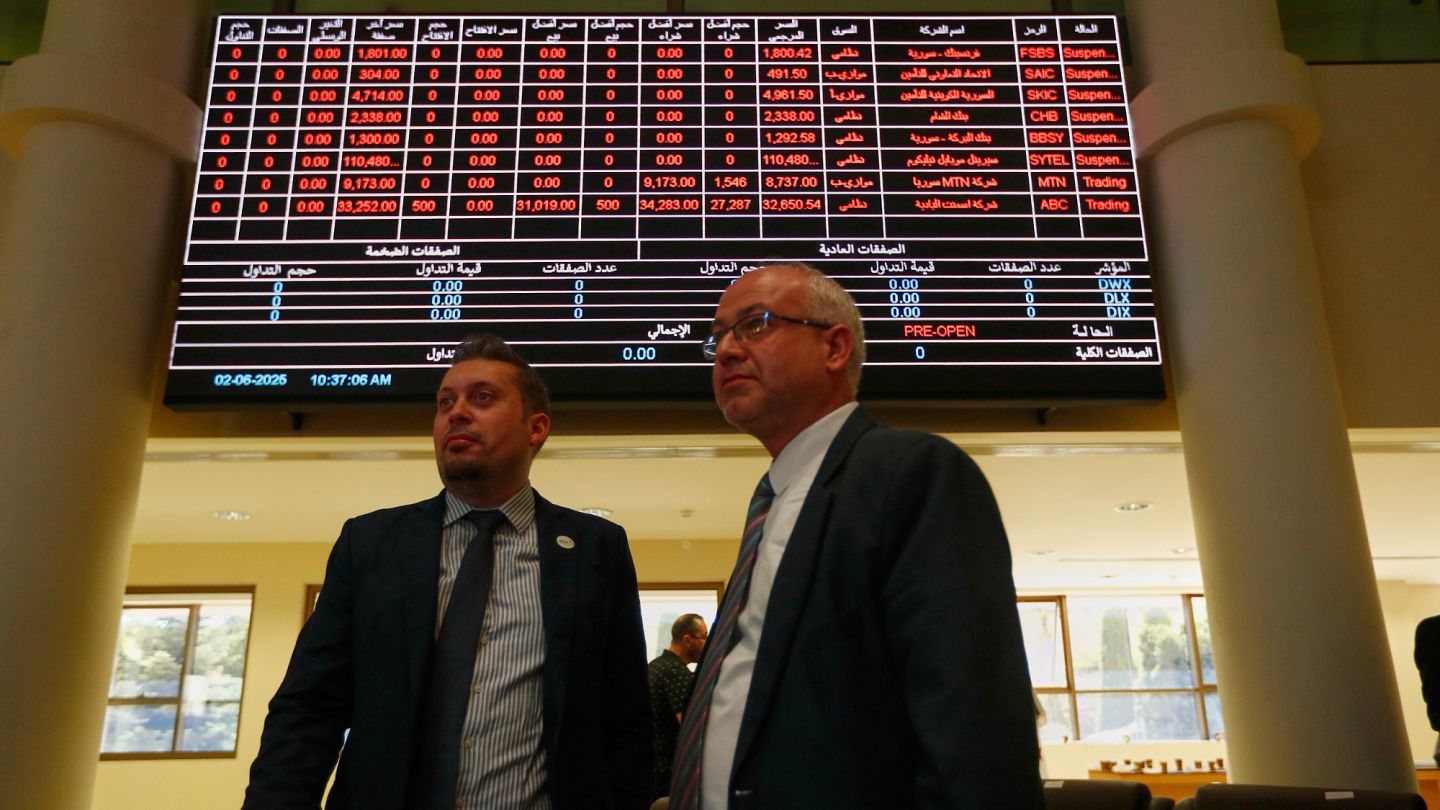Syria's stock exchange reopens after six-month closure in run-up to al-Assad ouster
The move to reopen comes as international restrictions on Syria's financial systems begin to ease in a bid to give the country a chance to rebuild after 14 years of civil war.
Trading has resumed on the Damascus Securities Exchange after a six-month closure, as Syria's new leaders attempt to shore up the country's battered economy and begin rebuilding after nearly 14 years of civil war.The stock exchange was closed in the chaotic days leading up to the December ouster of former long-time President Bashar al-Assad in a lightning rebel offensive.Syrian Finance Minister Mohammed Yisr Barnieh, who attended the reopening, said it signals that the country's economy is beginning to recover and that the stock exchange "will operate as a private company and serve as a genuine hub for Syria's economic development, with a strong focus on digital," state-run news agency SANA reported.He said the country's new leaders plan to "facilitate business operations and open doors to promising investment opportunities."The move to reopen comes as international restrictions on Syria’s financial systems begin to ease.The United States and the European Union have both announced the lifting of a wide raft of sanctions that had been slapped on Syria under the al-Assad dynasty's rule.Last week, the EU lifted sanctions on the country but slapped new ones on people and groups it said participated in attacks on civilians during a wave of violence in the coastal region in March.The EU's foreign policy chief Kaja Kallas had announced plans to lift the sanctions the previous week.She said the move was "conditional" and that sanctions could be resumed if the new government of Ahmad al-Sharaa, the former rebel commander who led the charge that ousted al-Assad, doesn't keep the peace.Kallas said in a statement that removing sanctions "is simply the right thing to do, at this historic time, for the EU to genuinely support Syria’s recovery and a political transition that fulfils the aspirations of all Syrians."Also last week, Syria inked a power deal worth $7 billion (€6.1 billion) with a consortium of Qatari, Turkish and US companies for the development of a 5,000-megawatt energy project to revitalise much of the country’s war-battered electricity grid.The consortium led by Qatar’s UCC Concession Investments — along with Power International USA and Turkey’s Kalyon GES Enerji Yatirimlari, Cengiz Enerji — will develop four combined-cycle gas turbines with a total generating capacity estimated at approximately 4,000 megawatts and a 1,000-megawatt solar power plant.


